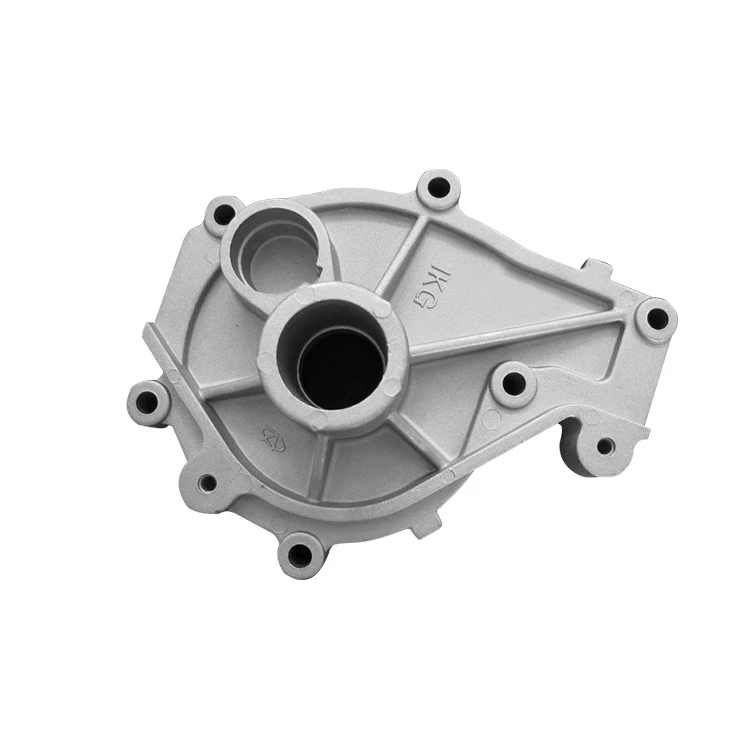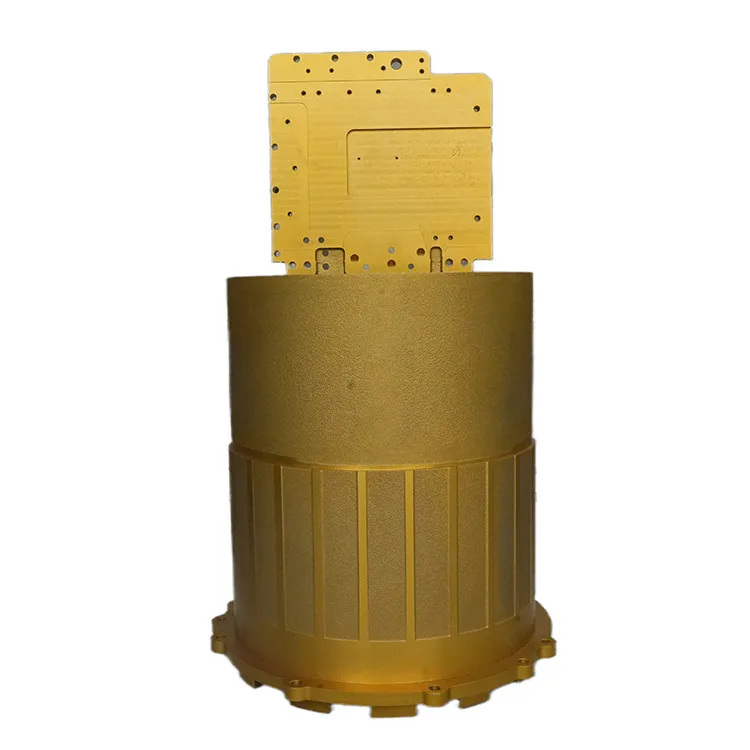Finding an Aluminum Casting Company with professional foundry experience
Just How Factory Provider Enhance Manufacturing Performance and Top Quality in Industrial Applications
Shop services play an important function in improving manufacturing effectiveness and quality across numerous industrial applications. By applying advanced metal spreading strategies, these solutions assure parts are produced with precision and consistency. This not just lowers preparations but likewise decreases waste, fostering better cooperation between shops and suppliers. The impact of high-grade elements on operational efficiency increases important concerns about the future of commercial production. What technologies exist ahead in this advancing landscape?
The Duty of Foundry Services in Streamlining Production Processes

Shops usually give competence in alloy advancement, allowing manufacturers to use advanced products that improve item efficiency. The cooperation in between producers and shops cultivates a much better understanding of manufacturing demands, bring about maximized processes and improved product styles. By leveraging shop solutions, manufacturers can accomplish greater versatility, adapt to transforming market needs, and maintain competitiveness in the market. Overall, the function of shop solutions is essential in facilitating an extra cost-effective and efficient manufacturing landscape.
Advanced Technologies in Foundry Workflow
Innovative technologies are changing foundry procedures, markedly improving performance and accuracy. Automation plays an essential duty, with robotic systems simplifying repetitive jobs such as molding and material handling. In addition, improvements in computer-aided design (CAD) and computer-aided production (CAMERA) systems make it possible for factories to develop complex geometries with higher precision and decreased product waste.
Furthermore, the combination of artificial knowledge (AI) and maker learning improves top quality control by monitoring procedures in real-time and anticipating prospective problems before they happen. The usage of innovative products, such as lightweight alloys and composites, further improves the efficiency features of actors items.
3D printing innovation is changing prototyping and tooling, allowing for fast customization and decreased lead times. Jointly, these innovative innovations not just raise production efficiency yet also ensure that the final items fulfill strict quality standards, positioning factories at the forefront of contemporary commercial applications.
Reducing Lead Times With Reliable Factory Practices
Reliable shop practices play a vital function in decreasing lead times within manufacturing settings. By carrying out streamlined production procedures and advanced organizing techniques, manufacturers can enhance process and optimize resource allocation. These improvements not only accelerate outcome but also add to general functional effectiveness.
Streamlined Production Procedures
Streamlining production processes is essential for lowering preparations in the production field. Efficient factory techniques, including optimized workflows and resource management, play an essential function in accomplishing this goal. By lessening waste and improving communication among groups, foundries can greatly improve their functional performance. The execution of standard treatments also adds to regular quality and faster turnaround times, allowing makers to react even more promptly to market demands. Additionally, the combination of innovative innovations, such as automation and real-time monitoring systems, helps in determining traffic jams and facilitating timely treatments. On the whole, a concentrate on structured manufacturing processes not only increases lead times however additionally enhances the total competitiveness of industrial applications, ensuring that items meet consumer assumptions properly.
Advanced Organizing Techniques
Efficient production processes naturally lead makers to check out advanced organizing methods as a method to additionally decrease preparations. By employing sophisticated algorithms and software, shops can enhance process, lining up production timetables with need projections and resource availability. Strategies such as Just-In-Time (JIT) organizing lessen stock costs while ensuring timely product shipment, thus enhancing functional performance. In addition, incorporating real-time data analytics permits foundries to prepare for potential delays and change timetables proactively. This flexibility not only enhances operations however additionally improves general productivity. Moreover, collective planning with clients and suppliers can promote an extra synchronized supply chain, more lowering preparations. Eventually, these innovative scheduling methods empower shops to attain higher effectiveness and premium quality in their manufacturing processes.
Making Certain Precision and Top Quality in Steel Spreading
Ensuring precision and high quality in metal spreading requires a careful method that includes every phase of the manufacturing procedure. This procedure starts with mindful design and design of the molds, assuring they can hold up against the liquified metal's temperature level and pressure. The choice of top notch raw products is crucial, published here as impurities can jeopardize the last product.
As soon as the materials are prepared, exact temperature level control during melting and pouring is fundamental to attain the desired buildings in the actors metal. Checking solidification and cooling rates additional warranties dimensional precision and surface area coating.
Quality control methods, such as non-destructive testing and assessment, are crucial to identifying defects early in the procedure. Precision aluminum casting. Additionally, employing knowledgeable workers that comprehend the nuances of steel spreading adds considerably to keeping high standards. On the whole, these practices collectively boost the reliability and performance of actors components in different industrial applications
Lessening Waste and Maximizing Source Usage

Furthermore, recycling scrap metal within the factory itself can considerably lower waste, transforming spin-offs into usable sources. Lean making concepts additionally add to throw away decrease by improving processes and eliminating unnecessary steps, resulting in more reliable procedures.
Routine maintenance of equipment assurances peak efficiency, avoiding breakdowns that can result in squandered materials. By concentrating on these techniques, factories not only lower costs yet likewise add to lasting methods, straightening with the expanding demand for eco accountable production methods in industrial applications.
The Competitive Benefit of High-Quality Components on the market
High-grade parts give a substantial affordable advantage in the foundry market, where accuracy and resilience are extremely important. Makers that prioritize superior materials and workmanship can improve product efficiency and reliability, leading to enhanced consumer contentment. This advantage is specifically noticeable in industries such as vehicle and aerospace, where component failure can have devastating repercussions.
High-grade elements often result in lower maintenance expenses and find more info expanded product life expectancies, which can be attractive selling points for possible customers. As market needs grow for sustainable and reliable modern technologies, the focus on top quality comes to be much more crucial. Business that buy high-quality shop services not only enhance their production processes however additionally differentiate themselves from competitors who may sacrifice high quality for price savings. Subsequently, the commitment to premium parts eventually converts into a stronger market placement and lasting organization success.
Regularly Asked Concerns
What Types of Materials Do Factory Solutions Typically Collaborate With?
Foundry solutions generally deal with steels such as aluminum, iron, steel, and brass, in addition to various alloys. They additionally manage materials like compounds and porcelains, accommodating varied industrial needs and specifications in making procedures.
Exactly How Do Shop Solutions Impact Overall Supply Chain Management?
Shop solutions significantly boost supply chain monitoring by enhancing material sourcing, decreasing lead times, and guaranteeing consistent top quality. Their capacity to offer tailored options promotes collaboration among stakeholders, inevitably improving overall functional efficiency and responsiveness in production.
What Industries Advantage Many From Foundry Solutions?
Industries such as auto, customer, building, and aerospace items substantially take advantage of factory solutions. These fields rely upon precision spreadings to meet strict top quality standards and improve their general manufacturing procedures and item efficiency.
Are Shop Solutions Ecologically pleasant and lasting?
Foundry solutions can be eco pleasant and sustainable, specifically when employing advanced innovations and procedures - Aluminum Casting Company. Developments such as recycling products, reducing emissions, and optimizing power use add to lessening their eco-friendly influence in commercial applications

How Can Firms Pick the Right Factory Company?
Business can pick the right factory service supplier by assessing know-how, manufacturing capabilities, top quality qualifications, innovation used, customer testimonials, and sustainability practices while ensuring positioning with their certain task demands and lasting company goals.
Shop solutions play an important duty in improving manufacturing performance and high quality across numerous industrial applications. The collaboration in between foundries and suppliers promotes a better understanding of manufacturing requirements, leading to maximized processes and improved product layouts. Efficient factory techniques play a necessary role in decreasing lead times within manufacturing atmospheres. By using sophisticated algorithms and software program, foundries can optimize process, straightening production routines with need forecasts and resource accessibility. Companies that spend in high-grade foundry services not just enhance their manufacturing procedures yet also distinguish themselves from rivals that may give up quality for cost savings.